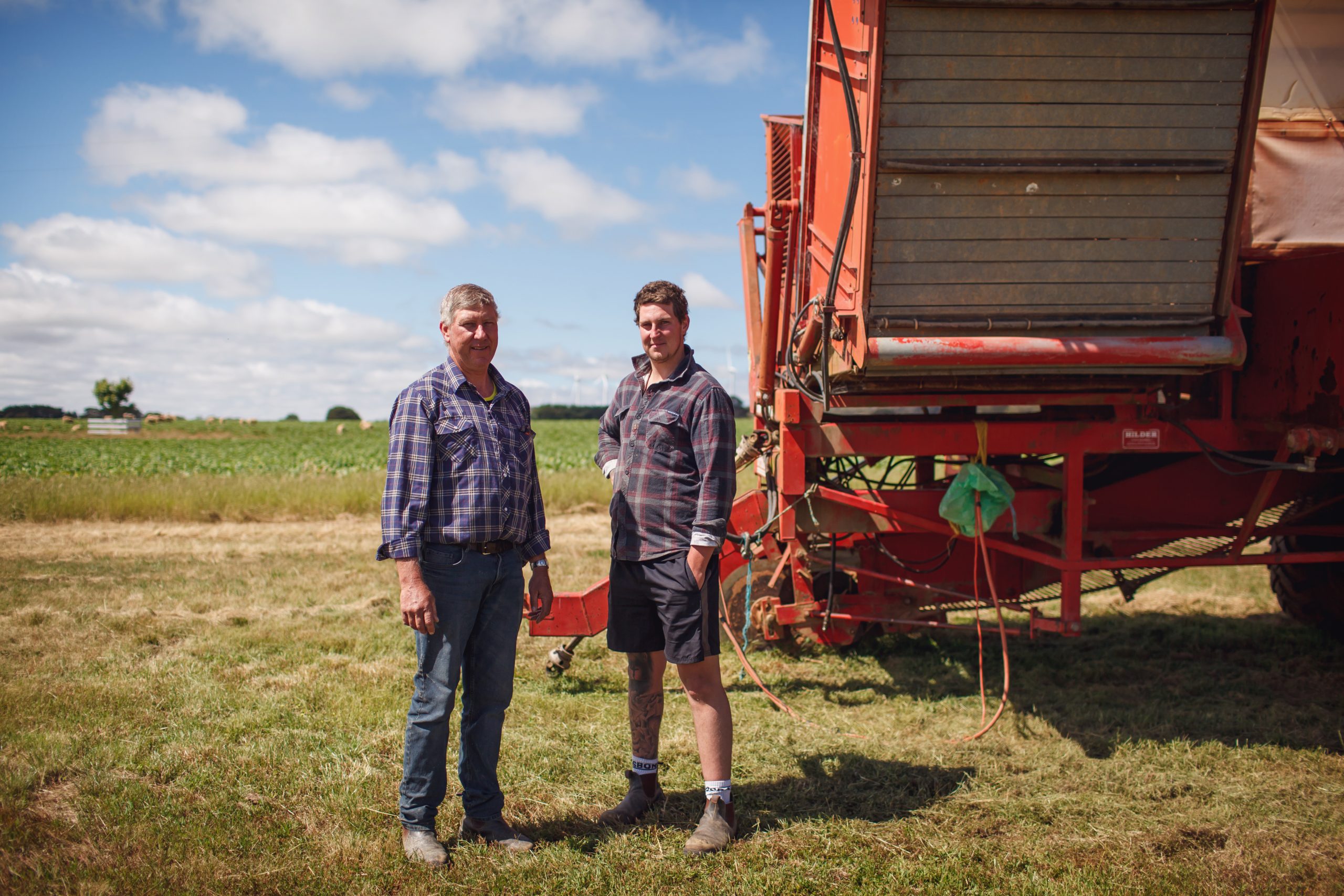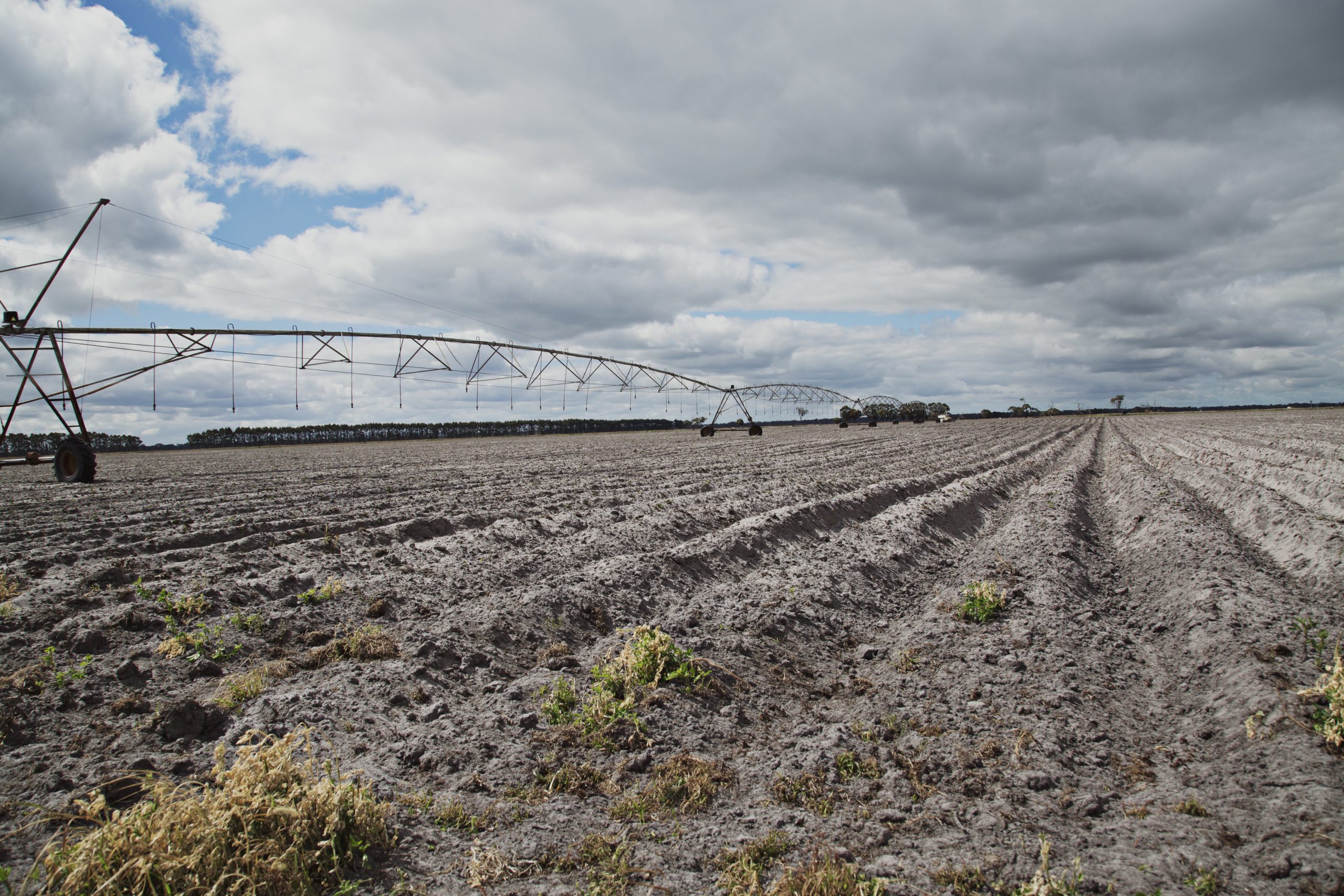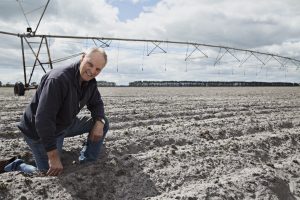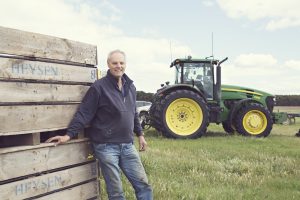
Matthew Gay: Read alert
23 April 2020Economics of weed management in the Australian vegetable industry
23 April 2020It’s only early days, but Tim Heysen is excited about boldly going where no potato grower has gone before.
Together with growers in the south east, southern Murraylands and the Mallee regions of South Australia, the Kalangadoo grower is playing a small part of an extensive three-year project examining the effect of groundwater on nine varieties of potato crops.
The project Impact of groundwater quality on the management of centre pivot-grown potato crops (PT16001) is a strategic levy investment under the Hort Innovation Fresh Potato and Potato Processing Funds. It is being coordinated by E.E. Muir & Sons, trading as Serve-Ag. It will include studying site and plant conditions to see how they affect the growth and health of plants, but the long-term goal is to increase productivity and profitability across the state by implementing proven practices.
In Tim’s case at Kalangadoo, about 50 kilometres north of Mount Gambier, the project is studying his Ranger Russet and Innovator potatoes, which he usually sells to McCain.
“The issue with our groundwater here is it is having many dissolved salts, including sodium chloride, in the water and pumping it out of an underground aquifer,” Tim said.
“Our aim is to find the magnitude of the problem in the area, then suggest changes or solutions to what can be done. It’s an exciting prospect because no one has previously tried to quantify how bad the issue is, and any knowledge we acquire is to be shared with other growers.”
Its expected outcome is an improvement to sustainable irrigation management and water efficiency at a local and regional level. The project will also assist growers in making well-informed decisions as to what, when and how much fertiliser to use as part of an integrated management plan.
Digging deep
The obvious focus would be the groundwater’s interaction with soil and in turn, the potatoes, Tim said. Other variables could include the depth of clay, soil issues, fertiliser practice (such as what works best and when) and irrigation management, such as whether frequent small applications of watering reaps premium results or if fewer applications of large volumes of water is preferential.
There’s also the matter of growers and their individual practices – some only grow a summer crop, planting in October or November and harvesting from February to May. Others in northern areas of the state generally plant in August and also in February.
Detailed plan
The complexity, scope and detail into which the project will delve is what sets it apart as a strategic levy investment. Tim said a project officer would monitor water quality through the season at the various farms, where it would be business as usual for participants.
“In South Australia we’ve all been dealing with a less-than-ideal water scenario, but this is about us all taking our product to the next level,” Tim said.
“It’s about examining each piece of the jigsaw puzzle and putting in place the best practices and strategies, and then sharing that information for the ultimate aim of creating higher yielding crops.”
Tim said it may be up to three years before definitive findings can be made, but he was confident the methodical process would unearth better and more efficient methods of growing potatoes.
Summary
- Project PT16001 is a three-year project that will examine the effect of groundwater on nine varieties of potato crops located across South Australia.
- In collaboration with a project officer and other growers, Tim Heysen from Kalangadoo will study how his Ranger Russet and Innovator potato crops can be better managed.
- The project is likely to improve sustainable irrigation management and water efficiency at a local and regional level, and will assist growers to make well-informed decisions.
- Impact of groundwater quality on the management of centre pivot-grown potato crops has been funded by Hort Innovation using the fresh potato and potato processing research and development levies and contributions from the Australian Government.
This article first appeared in the 2017 Grower Success Stories: Real results from the potato R&D levy.



